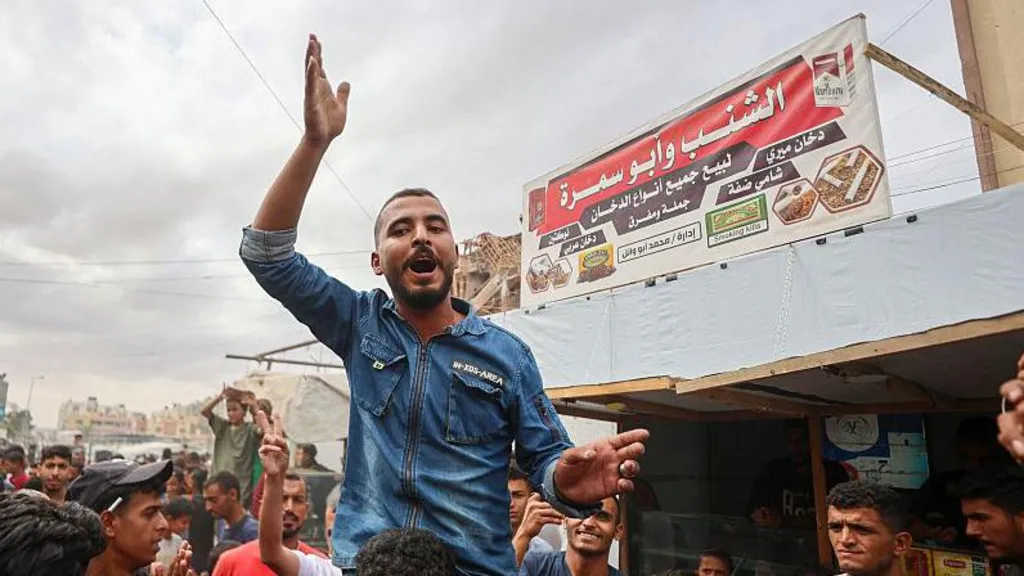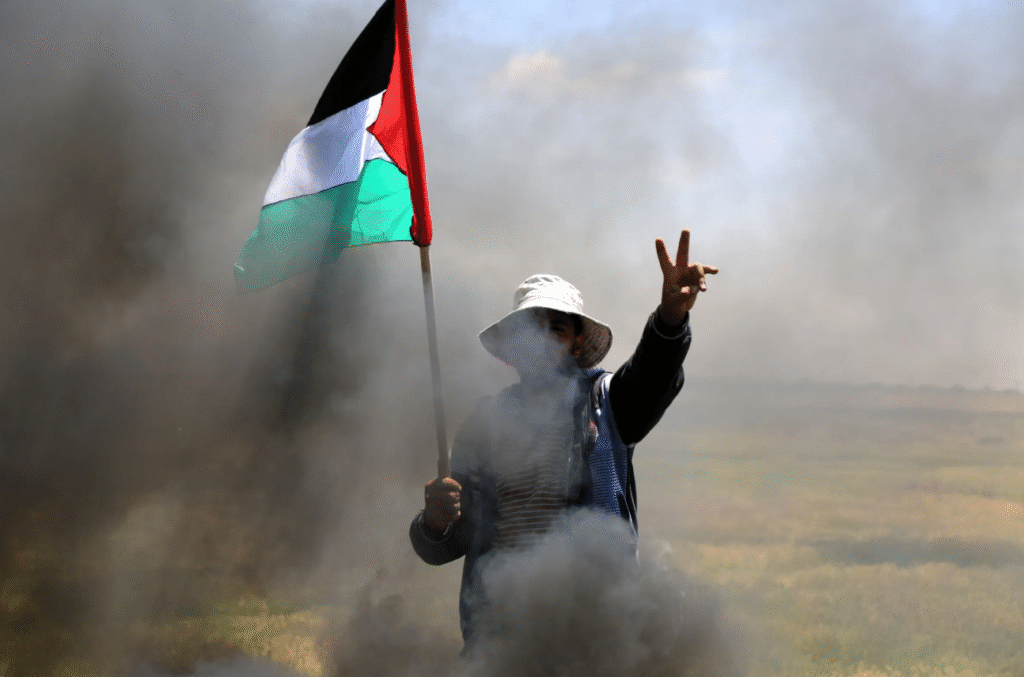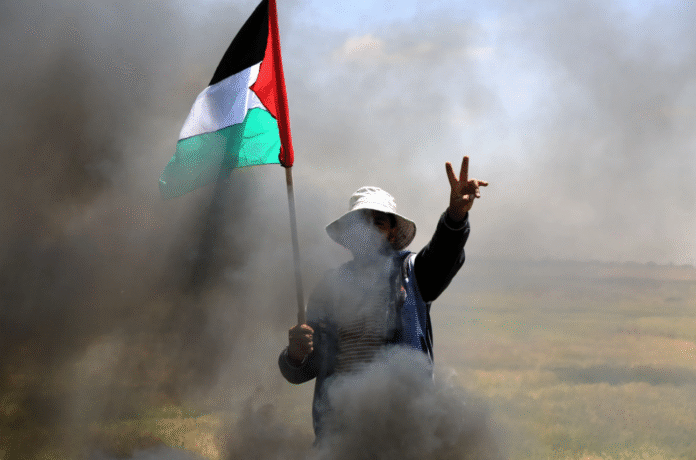Palestinians Celebrate Ceasefire Deal: Joy Mixed With Grief
The announcement of a long-awaited ceasefire has sparked mixed emotions across Gaza. While Palestinians celebrate ceasefire deal news with cautious joy, the overwhelming grief from two years of relentless war casts a heavy shadow.
For families who lost loved ones, the ceasefire feels like both a blessing and a reminder of irreplaceable pain. Fireworks lit the night sky, but behind every cheer lies the memory of homes destroyed and lives forever changed.

A Mother’s Grief and Hope for Peace
Among those touched by the announcement was Umm Hassan, a 38-year-old mother who lost her teenage son in the war.
“This morning, when we heard the news about the truce, it brought both joy and pain,” she said. “Out of joy, both the young and the old began shouting. But those of us who lost loved ones began remembering them, wondering how we would return home without them.”
Her words highlight the reality of many families in Gaza, torn between relief at a potential end to violence and sorrow for those who will never return.
Details of the Ceasefire and Hostage Deal
The ceasefire agreement, announced by US President Donald Trump, still awaits formal approval by Israel’s war cabinet. If implemented, the deal would include:
-
The release of 20 living hostages and the bodies of 28 deceased hostages.
-
The exchange of 250 Palestinian prisoners serving life sentences and 1,700 detainees from Gaza.
This represents the first phase of a 20-point peace plan, which, if successful, could bring a complete end to the war. But the road ahead remains uncertain, with future phases still under negotiation.
Civilians Carry the Heaviest Burden
While Palestinians celebrate ceasefire deal, many feel forgotten in the broader political landscape.
Daniel Abu Tabeekh, a resident of the Jabalia refugee camp, expressed frustration:
“We, the civilians, are the ones who’ve suffered, truly suffered. The factions don’t feel our pain. Leaders sitting abroad have no sense of the suffering we endure here in Gaza.”
Daniel has been without a home for over a year and a half, living on the streets after his house was destroyed. His story echoes the harsh reality for many displaced Palestinians.
The Human Cost of the Gaza War
The war in Gaza, launched by Israel in response to the October 7, 2023 Hamas attacks, has left devastating consequences.
-
1,200 Israelis killed during the attacks, most of them civilians.
-
251 hostages taken by Hamas fighters.
-
Over 67,000 Palestinians killed, mostly civilians, according to Gaza’s health ministry.
-
90% of Gaza’s housing damaged or destroyed, as reported by the UN.
These staggering numbers show why even as Palestinians celebrate ceasefire deal, the pain of loss remains ever-present.
Faith, Patience, and the Desire to Return Home
For many, faith offers comfort.
“God rewarded us for our patience,” said Umm Nader Kloub from northern Gaza, who lost seven family members, including her sons. “God willing, he will help negotiators and allow us to return to our homes. We don’t want war.”
Her words capture a common sentiment across Gaza: a desire for peace, dignity, and the chance to rebuild shattered lives.
Doctors Warn of the Challenges Ahead
Mousa, a doctor in Deir al-Balah, spoke to the BBC about the dire conditions in Gaza:
“We have lost so much in two years of war. The Gaza Strip is destroyed. A difficult time still awaits us, but the important thing is we hope to be safe.”
The destruction of infrastructure and healthcare facilities means that even if the war stops today, the road to recovery will be long and uncertain.
The Psychological Toll of War
Beyond physical destruction, the war has left deep psychological scars. Husam Zomlot, head of the Palestinian mission to the UK, explained:
“The worst part is that while you are losing loved ones, you cannot allow yourself to grieve. Your focus is only on survival and stopping the violence.”
He added:
“After the event, the main feeling will be grief, mourning, and a deep sense of loss. Because what we’ve lost is huge.”
This highlights the emotional weight Palestinians carry as they cautiously celebrate the news of a ceasefire.
Ceasefire: A Step Toward Healing or Just a Pause?
While Palestinians celebrate ceasefire deal, many worry this is only a temporary pause in a long conflict. Previous truces have failed, and trust is fragile.
Still, the hope of returning home, reuniting with loved ones, and rebuilding lives keeps spirits alive. Families cling to optimism that this time, the ceasefire could truly mark the beginning of peace.

The Global Response
The international community has expressed cautious optimism. The United Nations and humanitarian organizations have long called for a ceasefire to prevent further civilian suffering.
External mediators stress that while this agreement is historic, true peace will require addressing root issues, rebuilding Gaza, and ensuring both sides adhere to the deal.
For now, though, even a fragile ceasefire offers a rare moment of relief in Gaza’s long night of suffering.
Conclusion: Hope in the Midst of Loss
The announcement of a truce brings a complex mix of emotions: joy at the possibility of peace, but also grief at the irreversible losses endured.
As Palestinians celebrate ceasefire deal, they do so with hope that this marks the beginning of a new chapter, one where mourning can finally give way to rebuilding, healing, and living in dignity.

